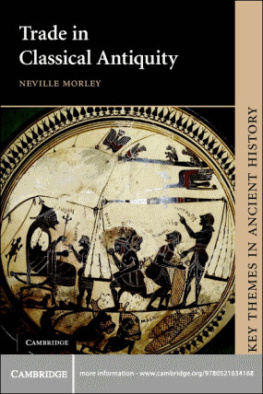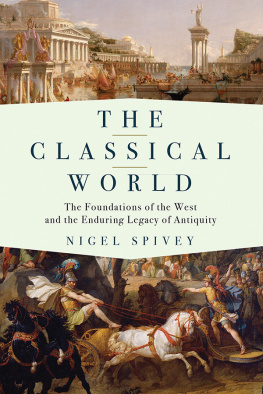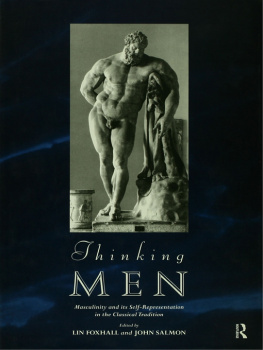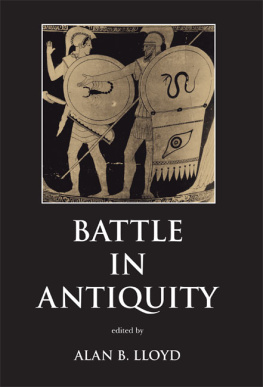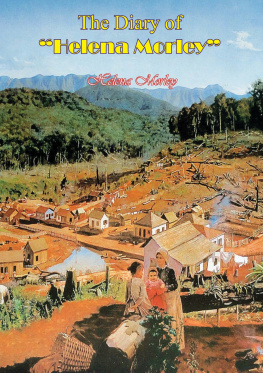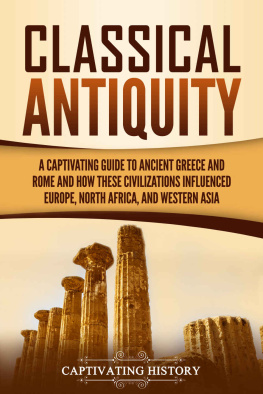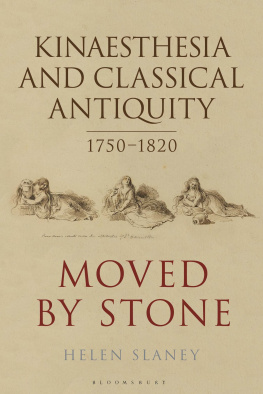Neville Morley - Trade in Classical Antiquity
Here you can read online Neville Morley - Trade in Classical Antiquity full text of the book (entire story) in english for free. Download pdf and epub, get meaning, cover and reviews about this ebook. City: Cambridge, GBR, year: 2009, publisher: Cambridge University Press, genre: Politics. Description of the work, (preface) as well as reviews are available. Best literature library LitArk.com created for fans of good reading and offers a wide selection of genres:
Romance novel
Science fiction
Adventure
Detective
Science
History
Home and family
Prose
Art
Politics
Computer
Non-fiction
Religion
Business
Children
Humor
Choose a favorite category and find really read worthwhile books. Enjoy immersion in the world of imagination, feel the emotions of the characters or learn something new for yourself, make an fascinating discovery.
- Book:Trade in Classical Antiquity
- Author:
- Publisher:Cambridge University Press
- Genre:
- Year:2009
- City:Cambridge, GBR
- Rating:5 / 5
- Favourites:Add to favourites
- Your mark:
- 100
- 1
- 2
- 3
- 4
- 5
Trade in Classical Antiquity: summary, description and annotation
We offer to read an annotation, description, summary or preface (depends on what the author of the book "Trade in Classical Antiquity" wrote himself). If you haven't found the necessary information about the book — write in the comments, we will try to find it.
Trade in Classical Antiquity — read online for free the complete book (whole text) full work
Below is the text of the book, divided by pages. System saving the place of the last page read, allows you to conveniently read the book "Trade in Classical Antiquity" online for free, without having to search again every time where you left off. Put a bookmark, and you can go to the page where you finished reading at any time.
Font size:
Interval:
Bookmark:

Trade in Classical Antiquity
Historians have long argued about the place of trade in classical antiquity: was it the life-blood of a complex, Mediterranean-wide economic system, or a thin veneer on the surface of an underdeveloped agrarian society? Trade underpinned the growth of Athenian and Roman power, helping to supply armies and cities. It furnished the goods that ancient elites needed to maintain their dominance and yet, those same elites generally regarded trade and traders as a threat to social order. Trade, like the patterns of consumption that determined its development, was implicated in wider debates about politics, morality and the state of society, just as the expansion of trade in the modern world is presented both as the answer to global poverty and as an instrument of exploitation and cultural imperialism. This book explores the nature and importance of ancient trade, considering its ecological and cultural significance as well as its economic aspects.
NEVILLE MORLEY is Reader in Ancient Economic History and Historical Theory at the University of Bristol. His previous publications include Metropolis and Hinterland: the City of Rome and the Italian Economy (Cambridge University Press, 1996) and Models and Concepts in Ancient History (2004).
Key themes in ancient history
Editors
P. A. Cartledge
Clare College, Cambridge
P. D. A. Garnsey
Jesus College, Cambridge
Key Themes in Ancient History aims to provide readable, informed and original studies of various basic topics, designed in the first instance for students and teachers of Classics and Ancient History, but also for those engaged in related disciplines. Each volume is devoted to a general theme in Greek, Roman, or where appropriate, Graeco-Roman history, or to some salient aspect or aspects of it. Besides indicating the state of current research in the relevant area, authors seek to show how the theme is significant for our own as well as ancient culture and society. By providing books for courses that are oriented around themes it is hoped to encourage and stimulate promising new developments in teaching and research in ancient history.
Other books in the series
Death-ritual and social structure in classical antiquity , by Ian Morris 0 521 37465 0 (hardback), 0 521 37611 4 (paperback)
Literacy and orality in ancient Greece , by Rosalind Thomas 0 521 37346 8 (hardback), 0 521 37742 0 (paperback)
Slavery and society at Rome by Keith Bradley 0 521 37287 9 (hardback), 0 521 36887 7 (paperback)
Law, violence, and community in classical Athens , by David Cohen 0 521 38167 3 (hardback), 0 521 38837 6 (paperback)
Public order in ancient Rome , by Wilfried Nippel 0 521 38327 7 (hardback), 0 521 38748 3 (paperback)
Friendship in the classical world , by David Konstan 0 521 45402 6 (hardback), 0 521 45998 2 (paperback)
Sport and society in ancient Greece , by Mark Golden 0 521 496985 9 (hardback), 0 521 49790 6 (paperback)
Food and society in classical antiquity , by Peter Garnsey 0 521 64182 9 (hardback), 0 521 64588 3 (paperback)
Banking and business in the Roman World , by Jean Andreau 0 521 38031 6 (hardback), 0 521 38932 1 (paperback)
Roman law in context , by David Johnston 0 521 63046 0 (hardback), 0 521 63961 1 (paperback)
Religions of the ancient Greeks , by Simon Price 0 521 38201 7 (hardback), 0 521 38867 8 (paperback)
Ancient Greece: using evidence , by Pamela Bradley 0 521 79646 6 (paperback)
Ancient Rome: using evidence , by Pamela Bradley 0 521 79391 2 (paperback)
Neville Morley

Cambridge, New York, Melbourne, Madrid, Cape Town, Singapore, So Paulo
Cambridge University Press
The Edinburgh Building, Cambridge CB2 2RU, UK
Published in the United States of America by Cambridge University Press, New York
www.cambridge.org
Information on this title: www.cambridge.org/9780521634168
Neville Morley 2007
This publication is in copyright. Subject to statutory exception
and to the provisions of relevant collective licensing agreements,
no reproduction of any part may take place without
the written permission of Cambridge University Press.
First published in print format 2007
ISBN-13 978-0-511-33885-4 mobipocket
ISBN-10 0-511-33885-6 mobipocket
ISBN 978-0-521-63279-9 hardback
ISBN 978-0-521-63416-8 paperback
Cambridge University Press has no responsibility for the persistence or accuracy of URLs for external or third-party internet websites referred to in this publication, and does not guarantee that any content on such websites is, or will remain, accurate or appropriate.
Contents |
| 1 |
| 2 |
| 3 |
| 4 |
| 5 |
| 6 |
As I was completing this book, in the weeks after Hurricane Katrina struck New Orleans, the price of petrol in some parts of the United Kingdom reached 1 per litre; this was, in part, because the destruction of refining facilities in the Gulf of Mexico meant that American oil companies were seeking to buy up supplies in Europe, while the price of crude oil on the global market passed $70 per barrel. This can be seen as an indication of the awesome power of the modern world-trade system to mobilise goods from across the globe; there is a shortfall in supply leading to a price rise, the news is communicated almost instantaneously and the market responds, shipping oil thousands of miles to where the demand is greatest. The demands of resentful road hauliers that the government should intervene to lower prices and protect their profits are based on a complete misunderstanding of basic economics; the market simply reflects the hard realities of supply and demand, and petrol subsidies or a reduction in fuel tax could defeat their own object by stimulating demand and pushing prices up even further. Such developments emphasise the relative powerlessness of states, let alone individuals, in the face of market forces; they are a forcible reminder that, within a globalised economy, even the basic rhythms of everyday life can now be affected by events thousands of miles away an experience which, as a regular buyer of Fairtrade products, I naively tend to associate more with downtrodden coffee and cocoa producers in the Third World. Connectivity, it is clear, affects us all; however much the rules of the game are rigged in favour of certain players, no one is wholly insulated from the effects of the global market.
Over the last decade, as I have been working on this book, the terms in which trade, markets and globalisation are discussed have been changing. There remain many adherents of the conventional view of trade as indispensable and unequivocally desirable, the lifeblood of economic development and the sole hope for lifting millions out of poverty; the market, it is argued, is the only efficient way of allocating and distributing limited resources. Some governments, above all those of the United States and the United Kingdom, continue to follow the advice of such economists, working to free world trade from its remaining constraints and to extend the reach of market forces further into social life. Increasingly, however, more critical voices have made themselves heard, not least in protests at meetings of the World Trade Organisation and G8 summits. Far from being a cure for poverty, trade is seen to be widening the gap between rich and poor. The globalised market creates misery for agricultural producers in Africa and South America, sweatshop workers in Asia and unemployed steel workers in South Wales; consumer demand for strawberries in December, perfectly round red tomatoes (however tasteless) and dirt-cheap meat (however toxic) destroys eco-systems and racks up the food miles; the relentless pursuit of profit undermines local social and economic structures, while even culture and knowledge become commodities. These developments are attributed not to trade per se but to the conditions under which it currently takes place depending on the commentator, the blame lies with systems of agricultural tariffs, the dynamics of capitalism or dependence on carbon-based energy but there is a general sense that more trade is not necessarily the answer to everything.
Font size:
Interval:
Bookmark:
Similar books «Trade in Classical Antiquity»
Look at similar books to Trade in Classical Antiquity. We have selected literature similar in name and meaning in the hope of providing readers with more options to find new, interesting, not yet read works.
Discussion, reviews of the book Trade in Classical Antiquity and just readers' own opinions. Leave your comments, write what you think about the work, its meaning or the main characters. Specify what exactly you liked and what you didn't like, and why you think so.

